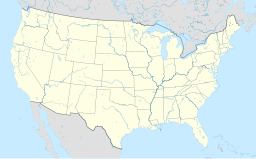Birdsboro, PA
| Birdsboro, Pennsylvania | |
| Borough | |
|
Birdsboro in 1890
|
|
| Country | United States |
|---|---|
| State | Pennsylvania |
| County | Berks |
| Elevation | 207 ft (63.1 m) |
| Coordinates | 40°15′47″N 75°48′28″W / 40.26306°N 75.80778°WCoordinates: 40°15′47″N 75°48′28″W / 40.26306°N 75.80778°W |
| Area | 3.54 km2 (1.4 sq mi) |
| - land | 3.46 km2 (1 sq mi) |
| - water | 0.08 km2 (0 sq mi) |
| Population | 5,163 (2010) |
| Density | 1,494.2/km2 (3,870.0/sq mi) |
| Timezone | EST (UTC-5) |
| - summer (DST) | EDT (UTC-4) |
| ZIP Code | 19508 |
| Area code | 610 Exchanges: 404,582 |
|
Website: www |
|
Birdsboro is a borough in Berks County, Pennsylvania, United States. Located along the Schuylkill River, it is 8 miles (13 km) southeast of Reading. As of the 2010 census, it had a population of 5,163. In the past, Birdsboro was noted for its large foundries and machine shops, none of which remain in operation today.
Birdsboro was named for ironmaker William Bird, who established a forge on Hay Creek about 1740. His son Marcus founded Hopewell Furnace in 1771, which was the largest domestic producer of iron by the time of the American Revolution. The Schuylkill Canal, running parallel to the river, was completed in 1827. The Philadelphia and Reading Railroad, constructed to haul anthracite coal, was completed in 1843. Edward and George Brooke, descendants of the Birds, established the Birdsboro Iron Foundry Company (1867), which became Birdsboro Steel Company (1905). The principal employer for 120 years, the steel plant closed in 1988, following a lengthy strike.
The borough was created in 1872, from sections of Union and Robeson townships. Its population increased slowly from 2,261 in 1890, to 2,264 in 1900, to 2,930 in 1910. The population was 5,064 at the 2000 census.
...
Wikipedia



